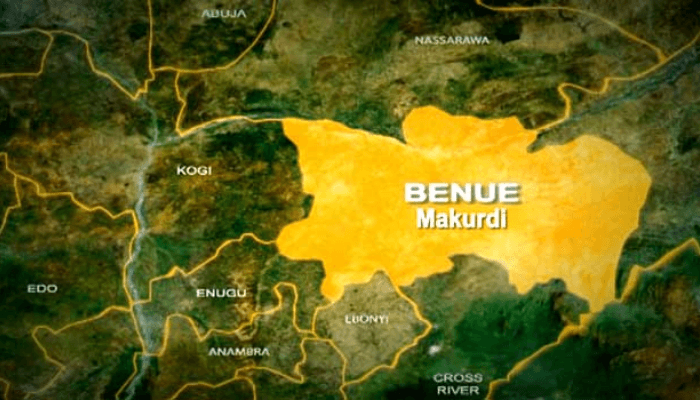On Monday, 16 June 2025, President Bola Ahmed Tinubu, adorned in the regalia of ceremonial leadership, stood triumphantly in Abuja, Nigeria’s Federal Capital Territory, to commission a waterworks project. Cameras flashed, sycophants applauded, and the official press release lauded the “symbol of progress and transformation”. But far removed from the pomp of the capital, in the blood-soaked plains of Benue State, charred bodies were still being unearthed: victims of yet another massacre that claimed over 150 lives in cold blood.
“A president cannot meaningfully claim to lead a nation if he is more concerned with photo ops in Abuja than emergency response in Benue. This isn’t about waterworks or infrastructure; this is about the appalling inability of Nigeria’s leadership to prioritise human life.”
This is not the first time Benue is drenched in blood. Since January 2024, coordinated attacks by armed herdsmen and militia groups have left more than 6,800 people dead in the Middle Belt, most of them in Benue. The attacks follow a chilling pattern: night raids, indiscriminate gunfire, the razing of homes, and targeted executions. In several cases, Nigerian soldiers and security agents have been overwhelmed, outgunned or, worse, accused of inaction. Yet, in the face of this profound national tragedy, the president chose to attend a ribbon-cutting ceremony in the safest city in the country.
To many Nigerians, this juxtaposition is not merely insensitive; it is contemptuous. A president cannot meaningfully claim to lead a nation if he is more concerned with photo ops in Abuja than emergency response in Benue. This isn’t about waterworks or infrastructure; this is about the appalling inability of Nigeria’s leadership to prioritise human life.
According to survivors in the Guma and Ukum Local Government Areas of Benue, the attackers, believed to be Fulani herdsmen, stormed villages with sophisticated weapons. Over 30 communities were affected, including Udei, Gbanjimba, and Tyowanye. These people were not armed combatants. They were farmers, women, and children: citizens of a sovereign republic, butchered while asleep or while fleeing on foot. In one instance, a local mass burial had to be postponed due to the sheer number of dismembered bodies yet to be identified.
International observers are watching. Reuters, Associated Press and Amnesty International have all raised alarm over the escalating violence in Nigeria’s Middle Belt, warning of possible ethnic cleansing and failure of the Nigerian state to discharge its constitutional duty of security and welfare for its citizens. Yet the president commissions water in Abuja.
Read also: President Tinubu to visit Benue Wednesday
In fairness, President Tinubu did release a terse statement condemning the attacks and promised a security review. But words do not stop bullets. Condemnations do not shield the innocent. And sympathy, without swift, measurable action, is nothing more than performative governance. There has been no state of emergency declared. No federal security task force deployed to root out the perpetrators. No nationwide address to calm the tension. Instead, there was a ribbon and a camera.
It begs the question: who are the president’s advisers? What kind of political think tank greenlights a celebration in the capital city while entire communities are left in smouldering ruins? Is there no sense of national empathy? Or have we, as a country, now accepted the mass killing of citizens as background noise?
Nigeria is not a monarchy. Leadership is not divine entitlement. It is earned through moral clarity, the courage to take hard decisions, and the sensitivity to lead during crisis—not merely to govern during calm. In this moment, Tinubu’s leadership is exposed not by his infrastructural drive but by his deafening silence on the massacre of those he swore to protect.
It is time for decisive, coordinated federal action. The president must immediately:
Declare a security emergency in Benue and other affected regions.
Deploy well-equipped joint military and police operations with specific counter-insurgency mandates.
Launch a national investigation into the failure of intelligence and defence operations in the Middle Belt.
Establish a humanitarian corridor for displaced families and release emergency funds through NEMA and the Ministry of Humanitarian Affairs.
Engage diplomatic partners, including the United Nations and African Union, for independent monitoring of the violence.
In addition, the National Assembly must stop its habitual abdication of oversight. This is the time to summon the heads of security agencies, initiate hearings, and demand accountability: not just for optics, but for action.
The Tinubu administration has repeatedly framed itself as reformist and progressive. But when a reforming government allows rural blood to spill while commissioning urban luxuries, what hope is left for the forgotten majority? A government must be judged not by the bridges it builds but by the lives it protects.
Until the killings in Benue and other states are addressed as the national emergency that they are, Nigeria’s claim to unity and governance remains little more than a hollow slogan. Development cannot be sustained where citizens live in fear of their neighbours, where the night brings dread, and where blood is the price of silence.
History will remember what was done in Abuja. But it will not forget what was ignored in Benue.

